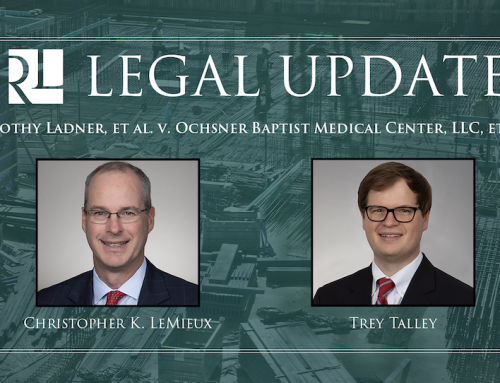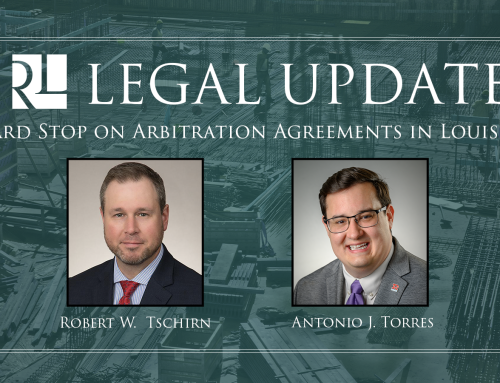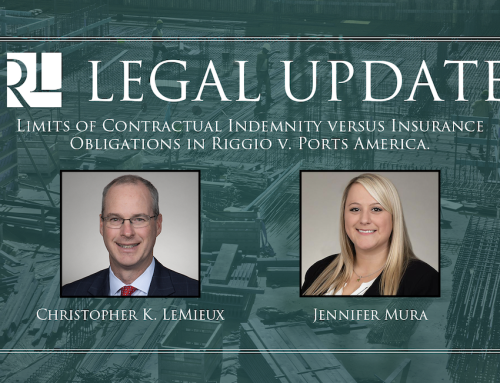
Authors: Christopher K. LeMieux and Spencer Johnson
Case Update: Guye v. Opelousas Hous. Auth. (December 2021)
The Louisiana Third Circuit recently considered the applicability of Louisiana’s Direct Action Statute in a suit brought by a contractor against a project owner and the owner’s insurer. In Guye v. Opelousas Hous. Auth., 2021-363 (La. App. 3 Cir. 12/8/21), the Third Circuit affirmed an exception of no right of action in favor of the insurer but reversed the trial court’s dismissal of the case with prejudice and remanded to allow the plaintiffs time to amend their petition to sufficiently allege a right of action against the insurer.
The owner’s insurer, Berkley Insurance Company, filed an exception of no right of action alleging that it was named as a direct action defendant and, since plaintiffs only asserted a claim for breach of contract, Louisiana’s Direct Action Statute did not provide plaintiffs a right of action against it. Plaintiffs argued that the requirement that a claim be in tort in order for the Direct Action Statute to apply does not exist when an insurer is sued along with the insured, and further that they had asserted a tort claim for negligent breach of contract.
The Court held that because there was no privity of contract between the plaintiffs and the alleged tortfeasor’s insurer, the plaintiffs must establish a right of action through the Direct Action Statute, which was enacted to give special rights of action to injured tort victims. Id. at p. 3. Since the right is conditional, an injured party only obtains a right of action against another person’s insurance company if all the requirements of the Direct Action Statute have been fulfilled. Id.
The Court “reiterated the well settled premise that ‘the Direct Action Statute is designed to facilitate the recovery of damages ex delicto; it does not authorize a direct action based solely on a breach of contract.’” Id. at p. 4 (quoting Mable v. Dow Chem. Co., 16-577, p. 5 (La. App. 1 Cir. 12/22/16)). The Court recognized that violations of contractual provisions may give rise to tort actions, but in that case a plaintiff must show that their negligence claims are separate and distinct and not arising from the breach of contract claim. See Id. “Particularly, the tort claim must arise from a duty other than one imposed by the contract.” Id.



